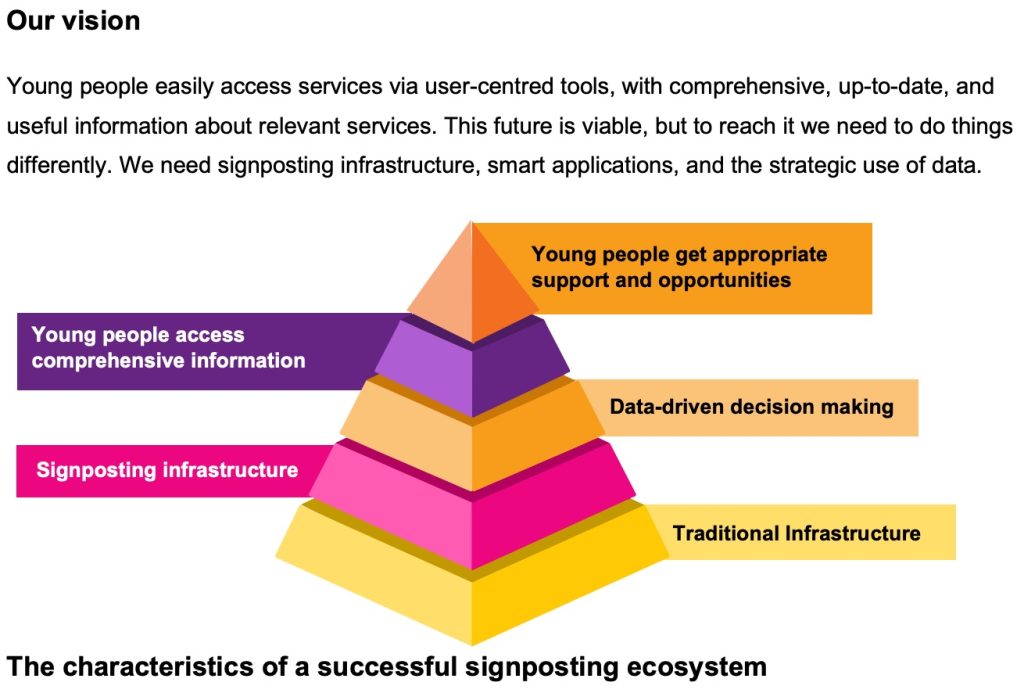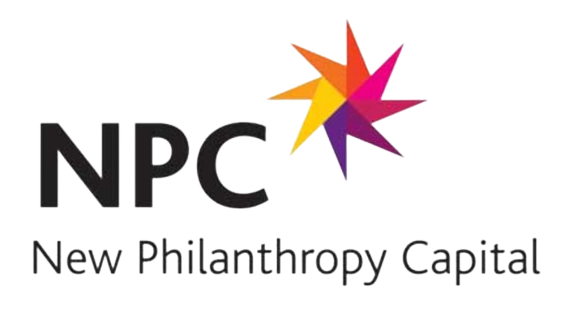[Today’s post comes to us from Tris Lumley, director of Innovation and Development at New Philanthropy Capital. Years ago NPC invited us to tell their community about our work on their blog, so we are especially excited to hear from them now about the research and analysis they now have to share. Welcome, Tris!]
NPC (New Philanthropy Capital) is a UK-based nonprofit whose mission is to help nonprofits and those that fund them to maximise their impact for the people they exist to serve. We work with individual nonprofits and funders to help them develop their strategies, learn and improve as individual organisations, and over our 20 year history we’ve worked with hundreds of organisations. But the impact we can have by working on the infrastructure that supports (or should support!) all nonprofits is greater still than that we have by working with organisations one-to-one.
One of the most ubiquitous challenges we’ve found throughout NPC’s history is signposting and referrals. In all our work to highlight effective nonprofits, we’ve found that a lack of infrastructure and standards around referrals mean that organisations can’t maximise their impact. Great nonprofits don’t necessarily get the referrals they should. People who want and need support don’t necessarily find the organisations and programmes that would work for them. In a sector that has very scarce resources, failing to crack the referrals challenge leaves huge potential on the table.
So NPC has been excited to work on the challenge of signposting and referrals over the last 7 years. First, we worked collaboratively with a group of youth nonprofits to develop a service directory prototype platform for young people called My Best Life. We built the service from the ground up – populating the directory with service data manually and laboriously, as there simply weren’t feeds available of information about local services in the area of London we focused on in the prototype. And because we wanted to work towards a standardised infrastructure for the future, we provided an Open Referral compliant feed of our data.
Today, NPC’s work has moved on from prototyping a product (now being taken to market by tech for good company Mind Of My Own) to exploring the infrastructure needed to support directories like My Best Life, and youth nonprofits as a whole. Working with the public benefit programme of UK domain name registrar Nominet – an organisation that knows the importance of digital infrastructure – NPC has led a collaborative programme of work called Signpost+. The first phase of the programme focused on research and discovery – identifying organisations who were contributing to the (fledgling) signposting and referrals infrastructure for young people, and working with them to envisage the future infrastructure of the youth sector.
This work culminated in the publication of a report called How might we improve signposting for young people? which set out our recommendations for the future. These are to:
- Test existing models for signposting referrals to assess their value and effectiveness
- Engage funders in this work to explore sustainable solutions
- Build on standards such as Open Referral to show their value
- Build on existing data where it exists in the public, private or nonprofit sectors

We’re now in the practical phase of the Signpost+ programme, taking forward those recommendations and working with partners to understand and develop their signposting and referral platforms. What’s clear is that we’re only at the start of a journey to develop robust infrastructure. At present, the services are all fairly recently established, and still working out how to crack the main challenges – how to source data about services, perform quality assurance, and how to fund their work. It’s fair to say that we’re only in the foothills of the data stewardship challenge – ensuring that data is accessible, usable, safe and trusted remain ongoing problems to solve.
And the potential for open standards like Open Referral, and for shared and open data, also remain largely in the future, while developing data services establish their business models and funders and investors wake up to their importance.
Our ambition, and hope, is that all services providing data about services and opportunities that benefit young people will ultimately be able to produce and share data that is standardised, robust, current and open to all. That vision will be enabled, at least in part, by funders who recognise the critical role that data stewards play in the infrastructure that supports all service provision. Open Referral’s leadership on these issues, and data stewardship as a whole, have already been valuable to the Signpost+ programme, and we hope will be central to its future development. We look forward to engaging more with the Open Referral community to learn how others are mastering the challenges, and sharing our progress as we ourselves, learn and adapt in the future.


Leave a Reply